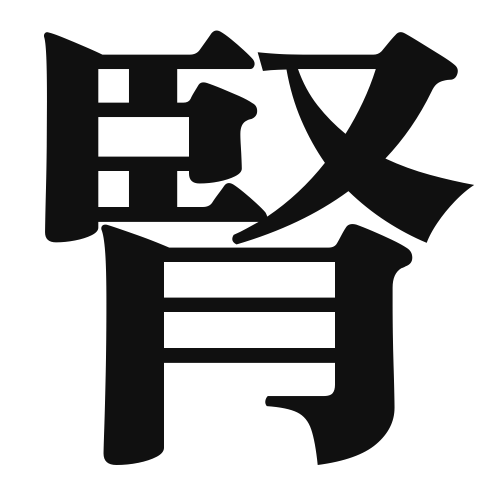1. Overview of Meaning
The kanji “腎” (jin) refers to the kidneys, which are vital organs in the human body responsible for filtering blood and producing urine. In a broader sense, it can also symbolize health and vitality.
2. Formation and Radical
Formation of the Kanji: The kanji “腎” is a phonetic compound (形声文字) that combines the radical for flesh (肉) on the left, indicating its relation to the body, with the phonetic component “申” (shin) on the right, which contributes to its pronunciation.
Radical: The radical for “腎” is 肉 (niku), which relates to meat or flesh, emphasizing its connection to bodily organs.
3. Examples of Usage
Common Words and Phrases:
- 腎臓 (じんぞう, jinzō) – kidney
- 腎不全 (じんふぜん, jinfuzen) – kidney failure
Example Sentence in Daily Conversation:
「最近、腎臓の健康に気をつけています。」(I have been paying attention to my kidney health lately.)
4. Synonyms and Antonyms
Similar Kanji:
- 肝 (かん, kan) – liver; while both are vital organs, the liver has different functions related to metabolism and detoxification.
Antonyms:
- 心 (こころ, kokoro) – heart; representing emotions and feelings, contrasting with the kidneys’ physical and functional role.
5. Cultural and Historical Background
Relation to Japanese Culture: In traditional Japanese medicine, the kidneys are associated with the body’s overall vitality and energy. They are often considered important for maintaining health.
Proverbs and Idioms:
「腎を守る」(to protect the kidneys) is a phrase that emphasizes the importance of taking care of one’s health.
